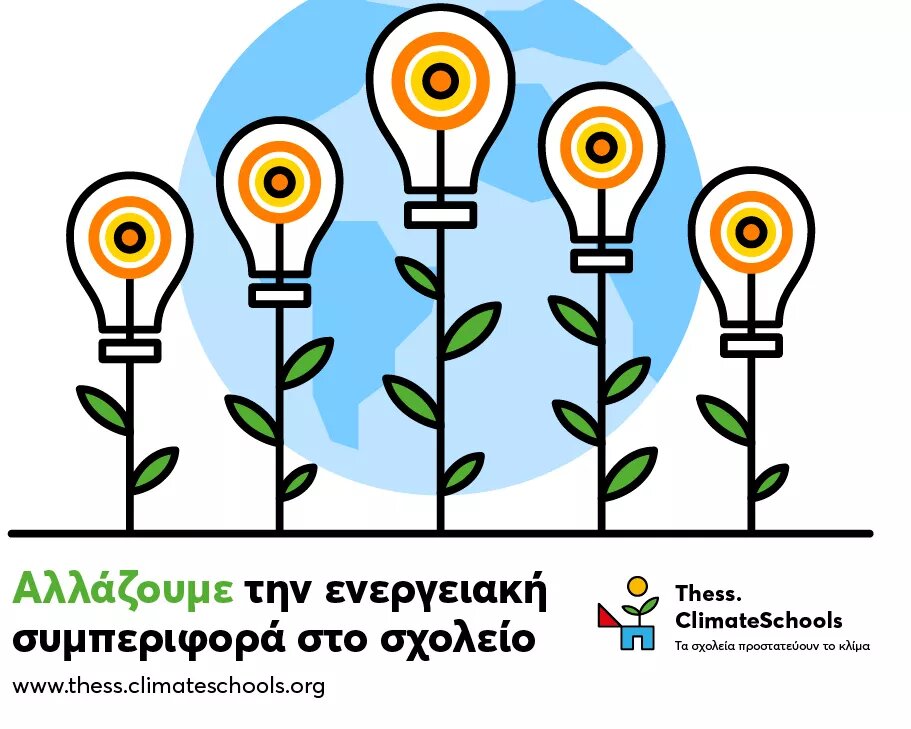The environmental educational program Thess.Climateschools - Schools Protect the Climate has started being implemented by 14 primary and secondary schools in the area of Thessaloniki.

The aim of the program is to sensitize the school community in order to engage in the fight against climate change by increasing the energy efficiency of the school and decreasing its ecological footprint.
Teachers and students will study the issue of climate change and energy transition, and will develop practices for energy saving at the school building. Moreover, the school community is expected to become aware and to change behaviour concerning energy consumption as to ultimately decrease the ecological footprint of the school. At the same time, the program aims at activating the municipalities to take action for upgrading the energy efficiency of the school buildings and thus save resources.
The program is organised by the following partners:
- Environmental Education Centre of Eleftherio Kordelio & Vertiskos
- ANTIGONE - Information and Documentation Center on Racism, Ecology, Peace and Non Violence
- Heinrich Böll Stiftung, Thessaloniki Office, Greece
with the participation of the Environmental Education Officers of Primary and Secondary Education Directorates of Thessaloniki.
The program “Schools protect the Climate” is based on the methodology developed for the program "Schools open on climate protection and energy savings", which was implemented in 73 Schools in Athens (Greece) during the period 2017-2019. www.athensecoschools.gr
The methodology consists of the following 10 steps:
- Step 1 Creation of Energy Team consisted of students
- Step 2 Creation of the Energy Board consisted of teachers, students, parents, employees at the municipality etc.
- Step 3 Implementation of an energy tour by the Energy Board around the school building recording the energy profile of the school
- Step 4 Studying the issue of energy production and consumption in context of climate change
- Step 5 Implementation of an energy tour by the Energy Team around the school building and recording of the energy profile of the school
- Step 6 Analysis of the data collected during the energy tour performed by the Energy Team and writing of an Eco-Code including behavior rules for the school community
- Step 7 Campaigning for the implementation of the Eco-Code by the school community
- Step 8 Observing and measuring the energy consumption in school, activities for raising awareness of the local community about the issues of climate change and energy consumption
- Step 9 Elaborating proposals for improving school building infrastructure in order to improve its energy efficiency
- Step 10 Evaluation and public presentation of the school activities during the program
Visit the website of the program here.